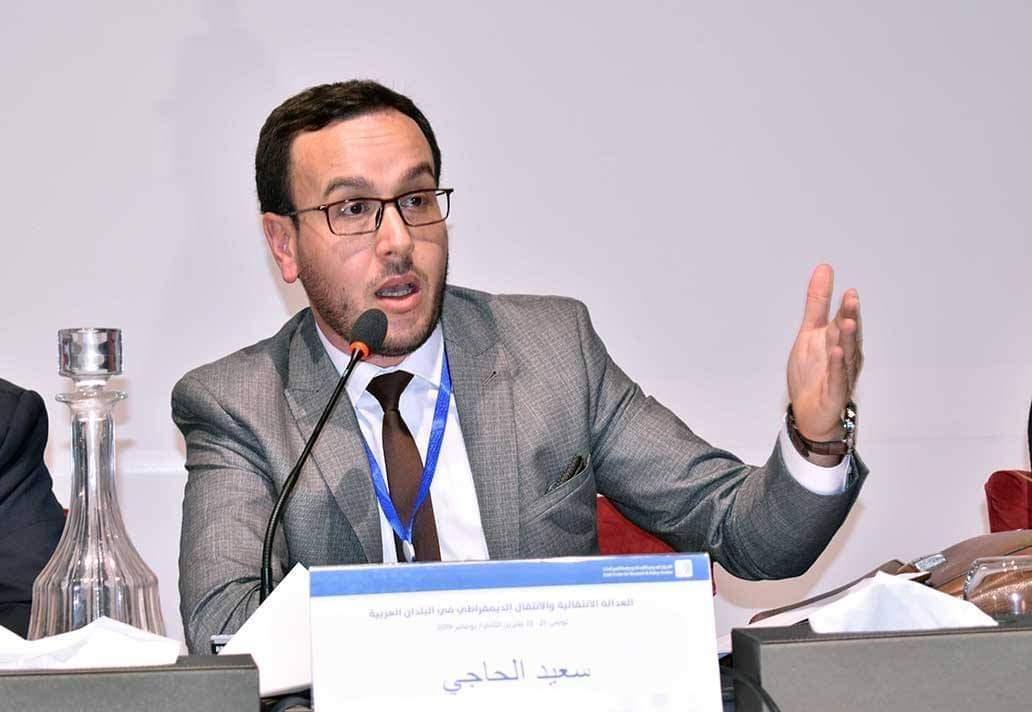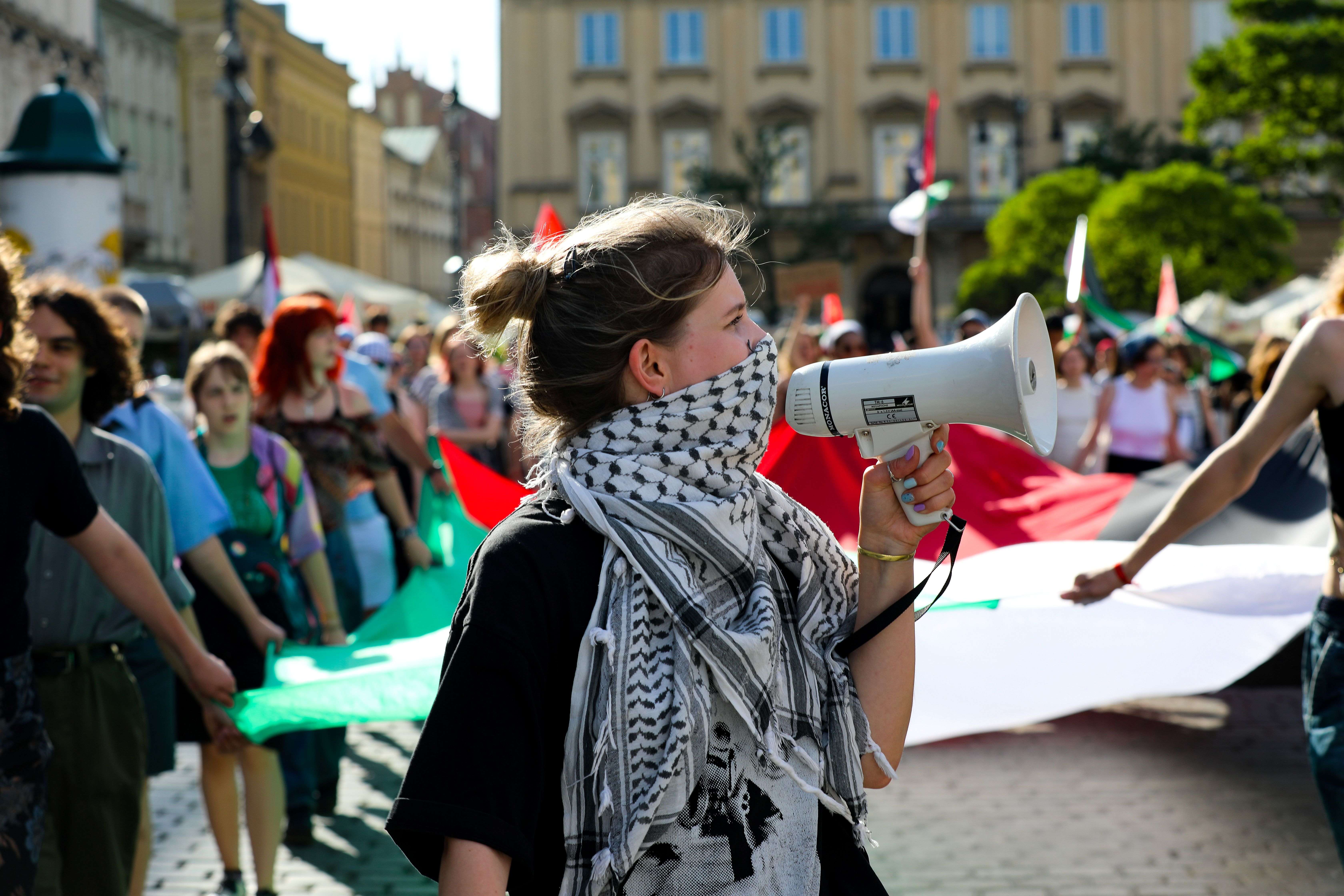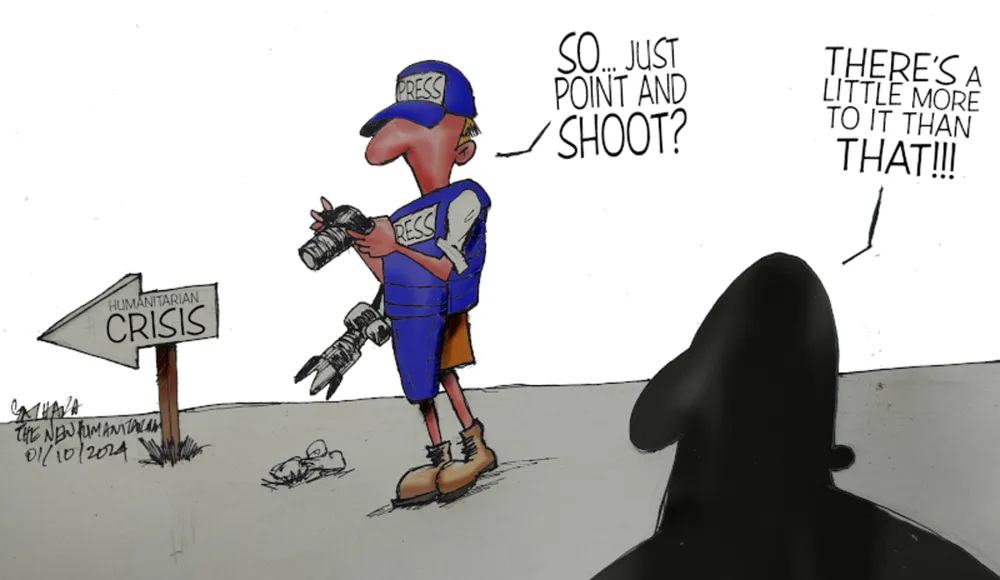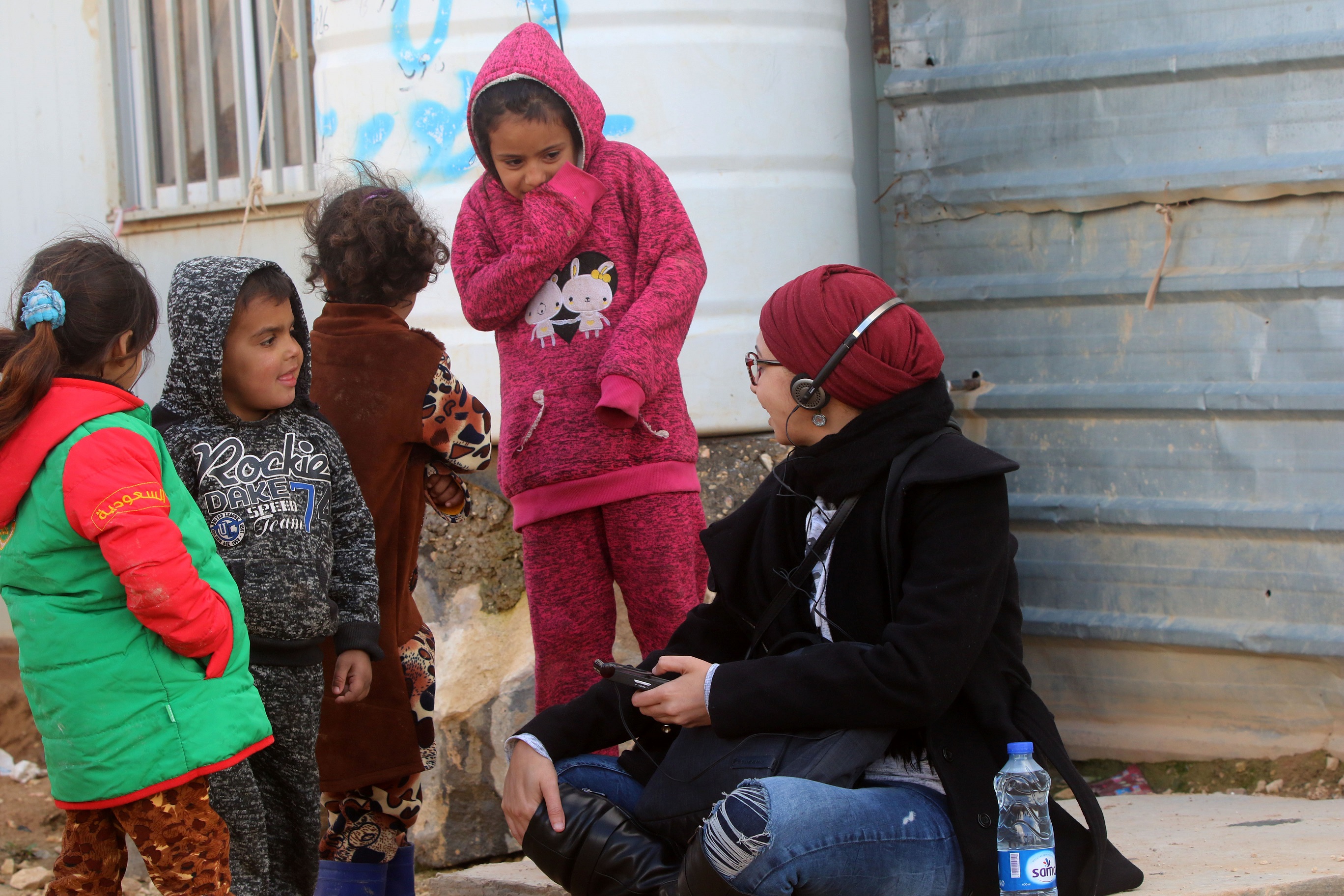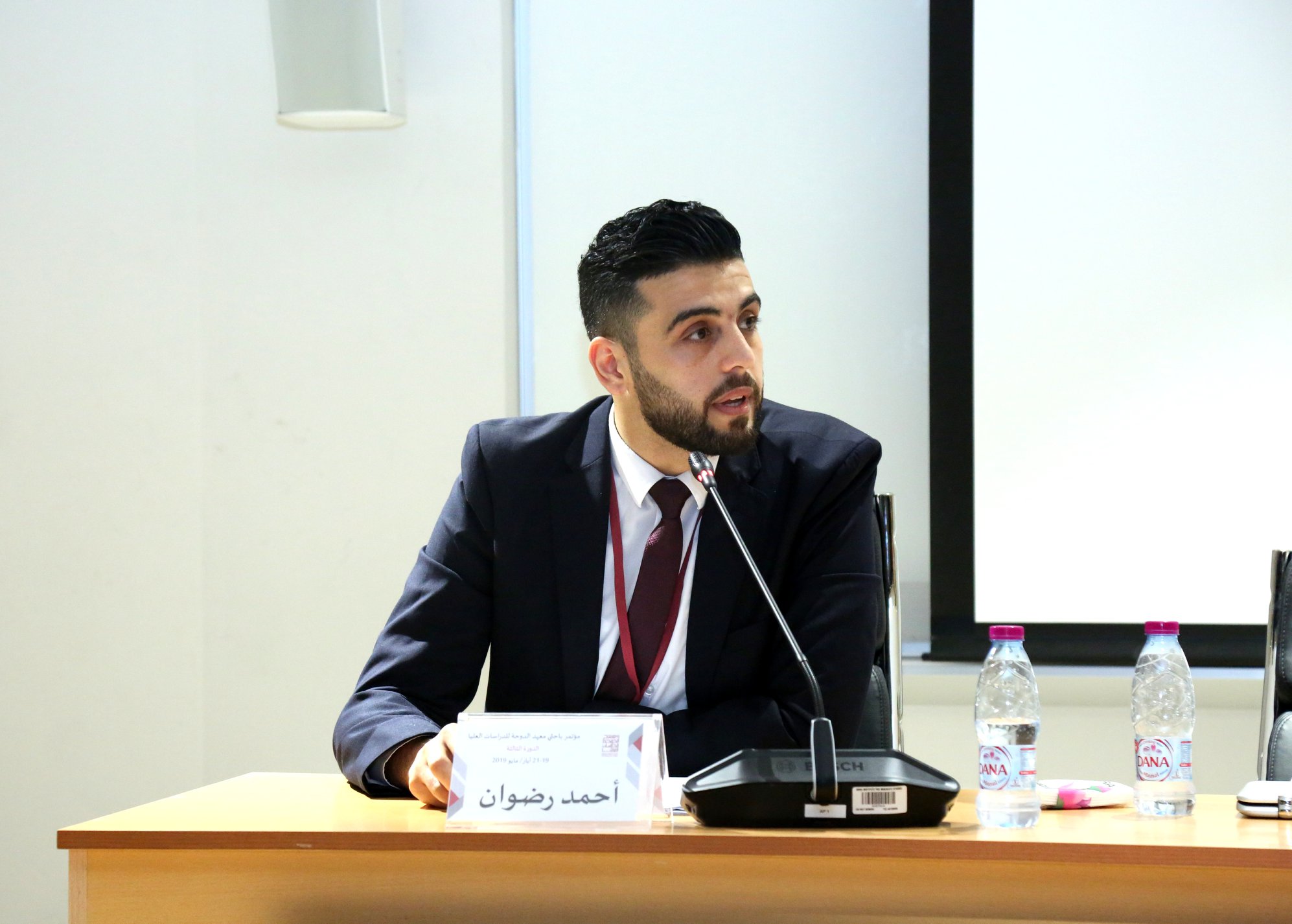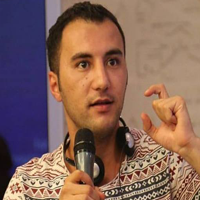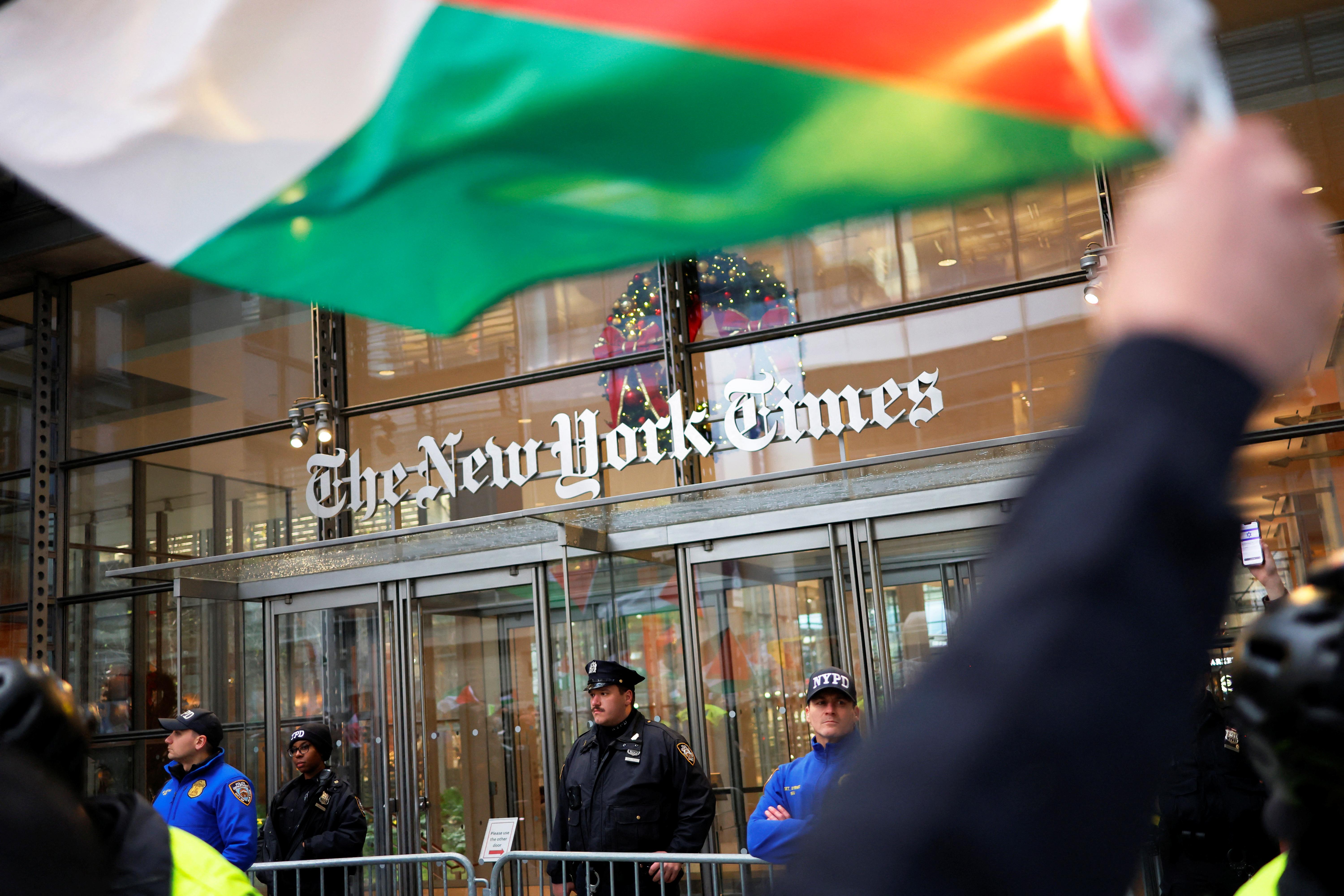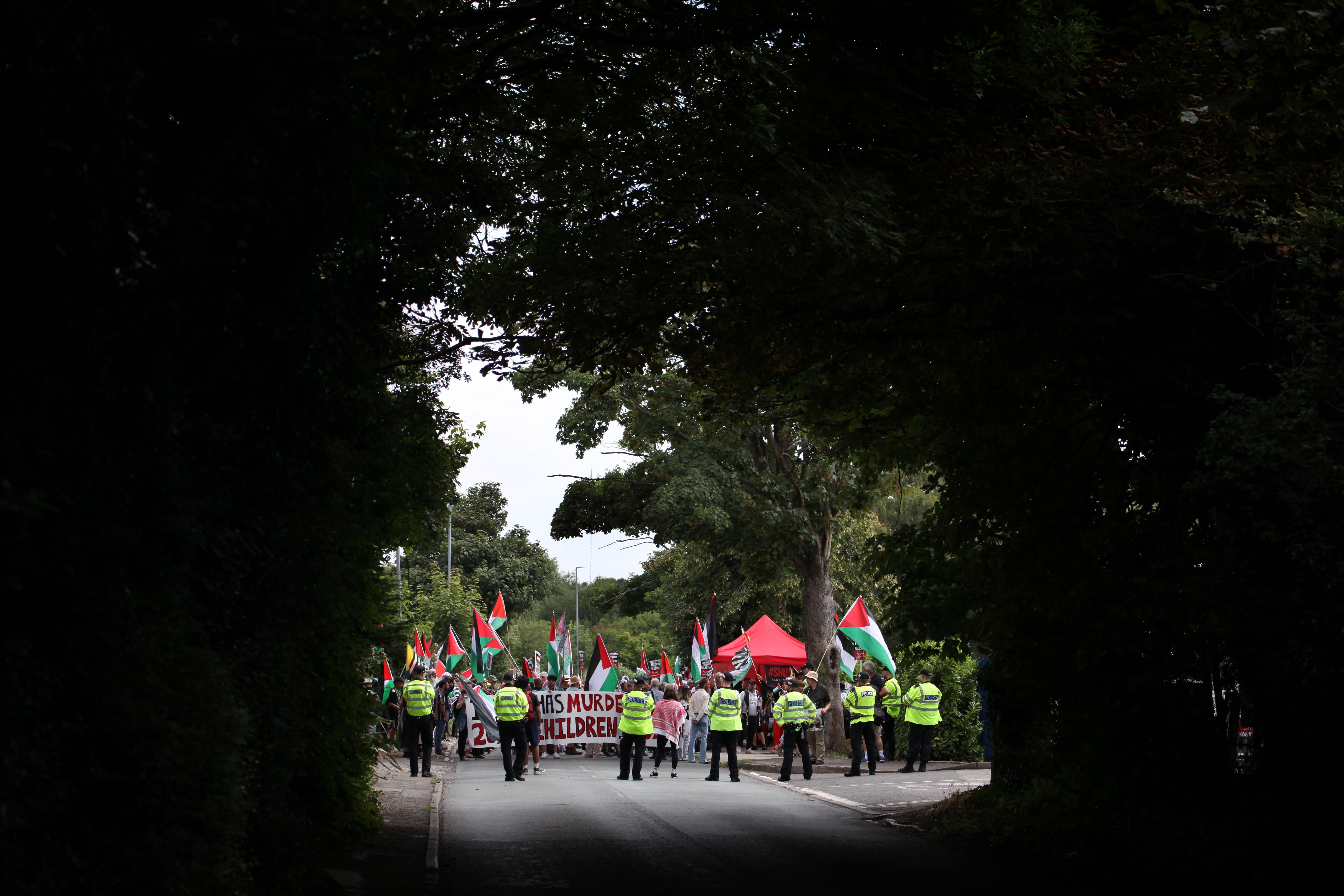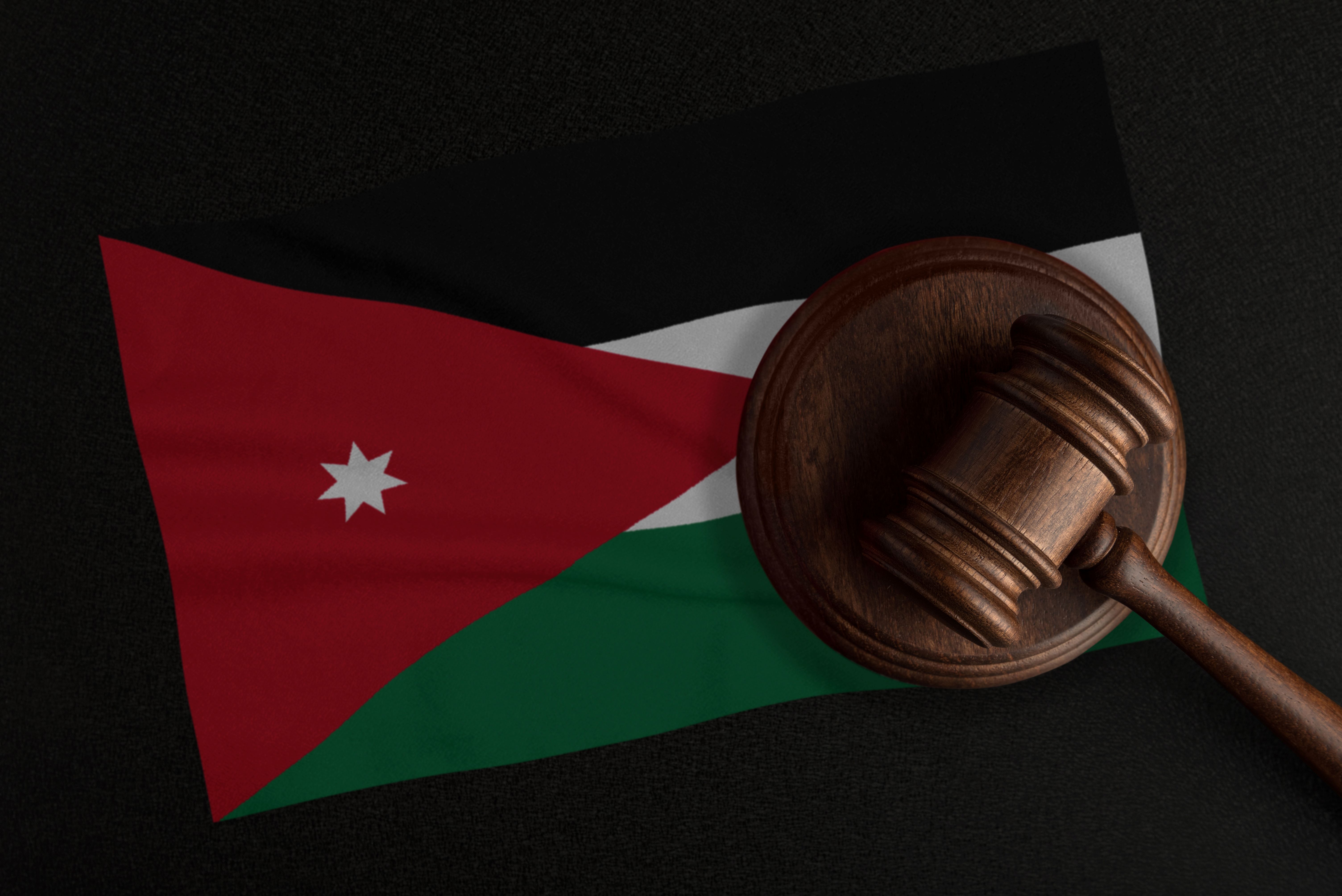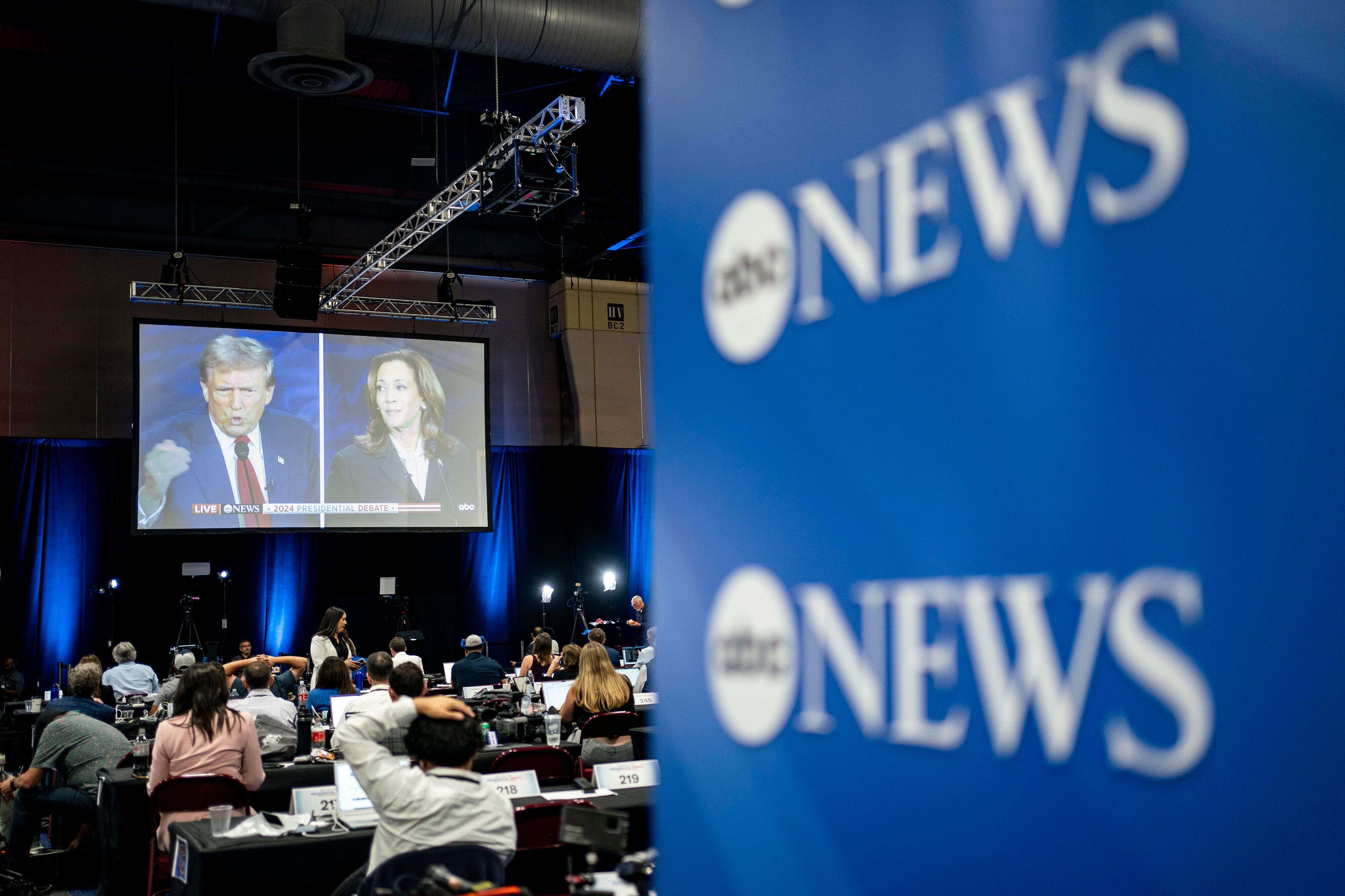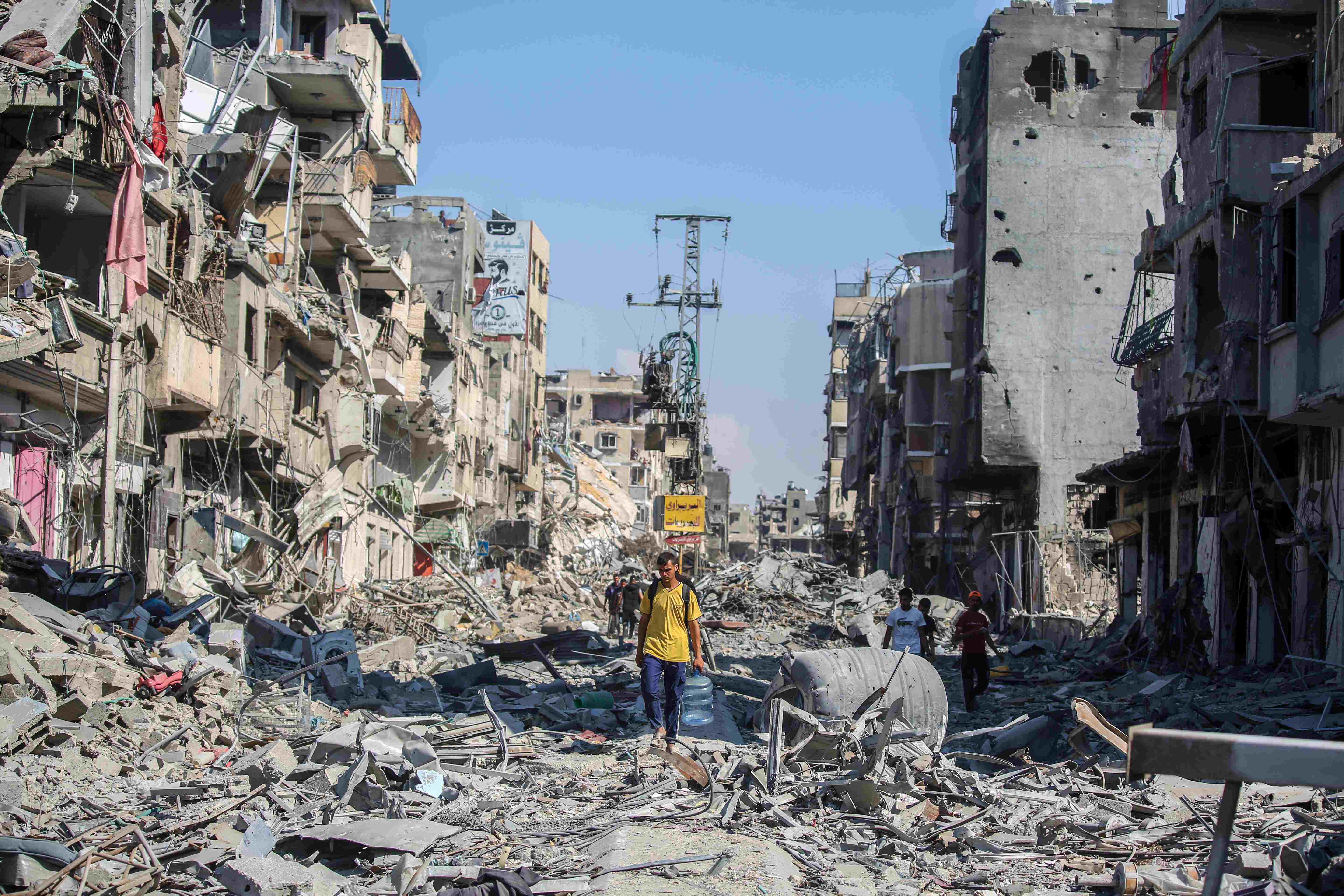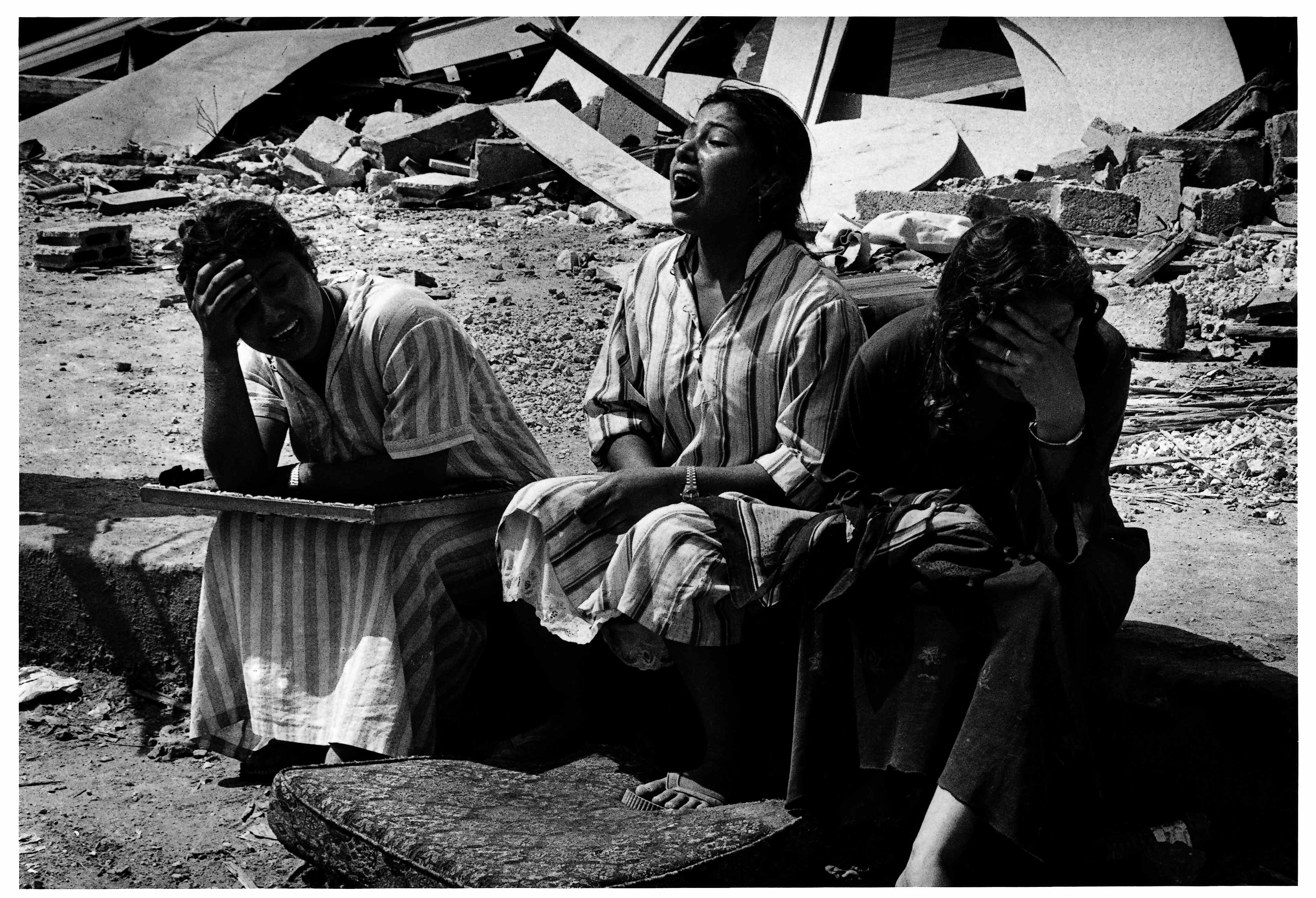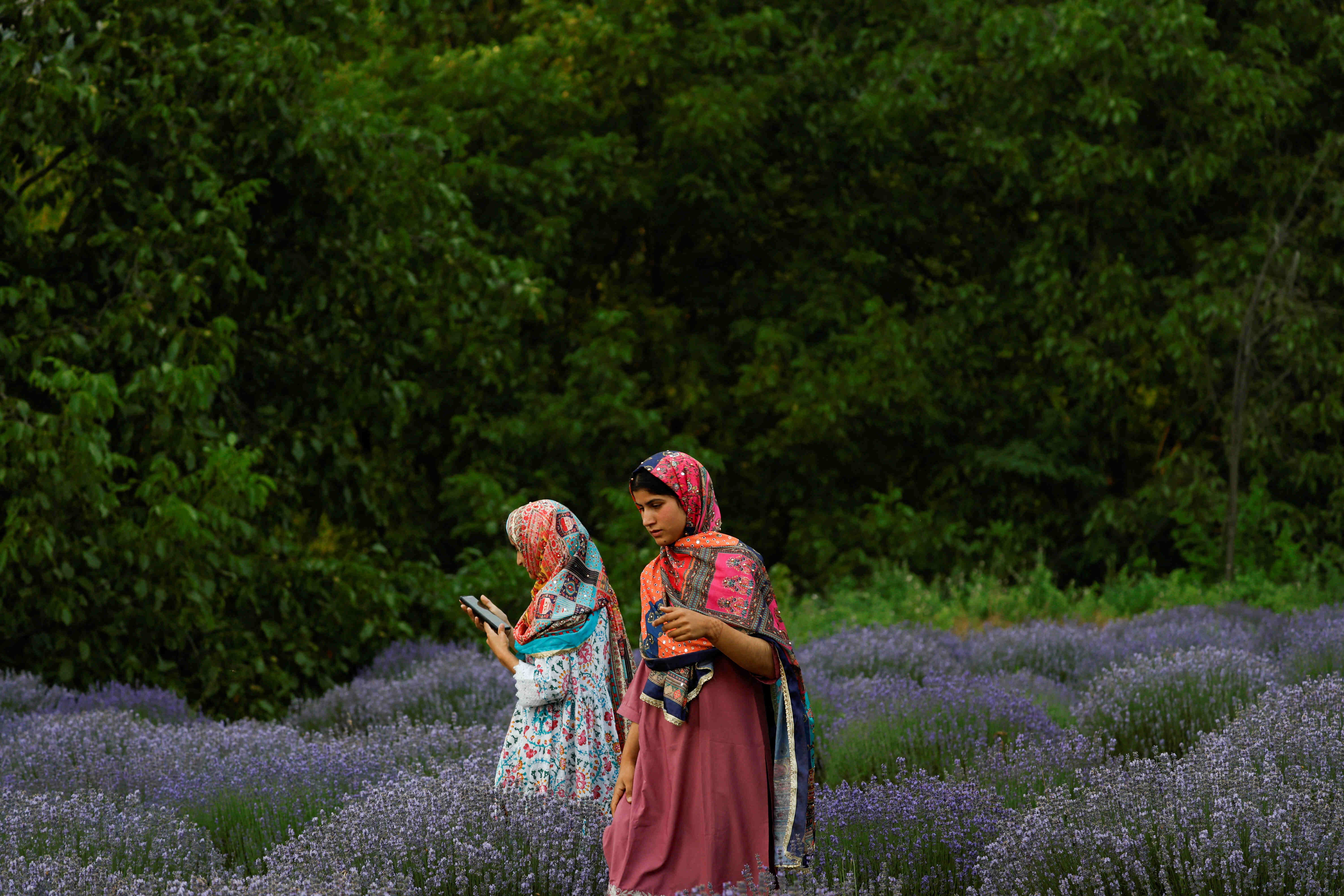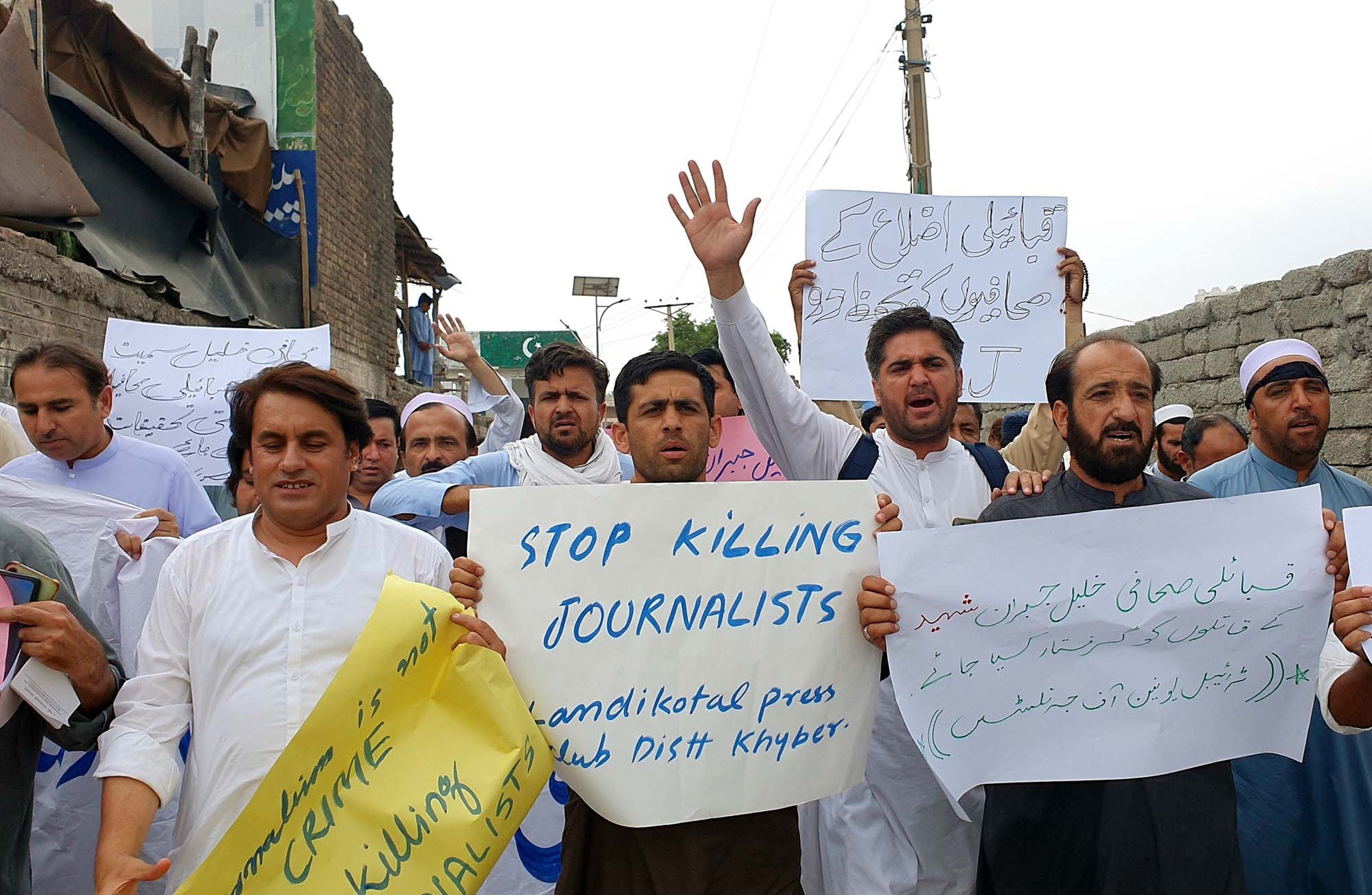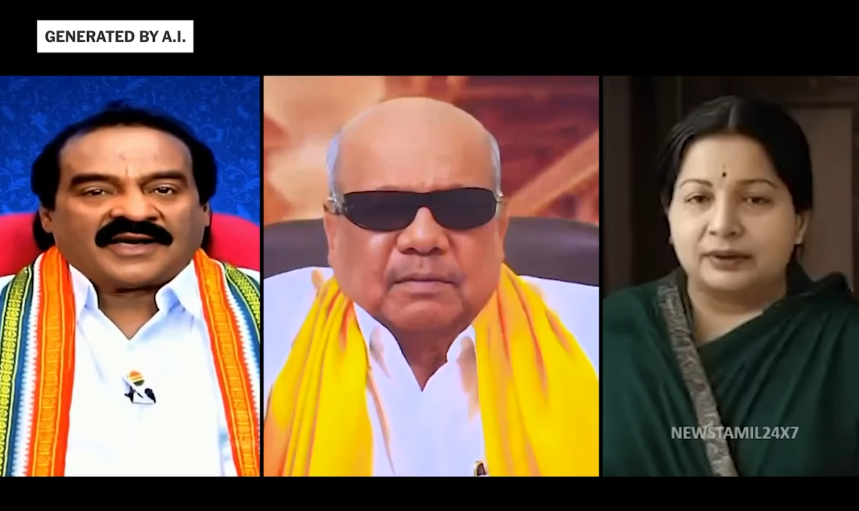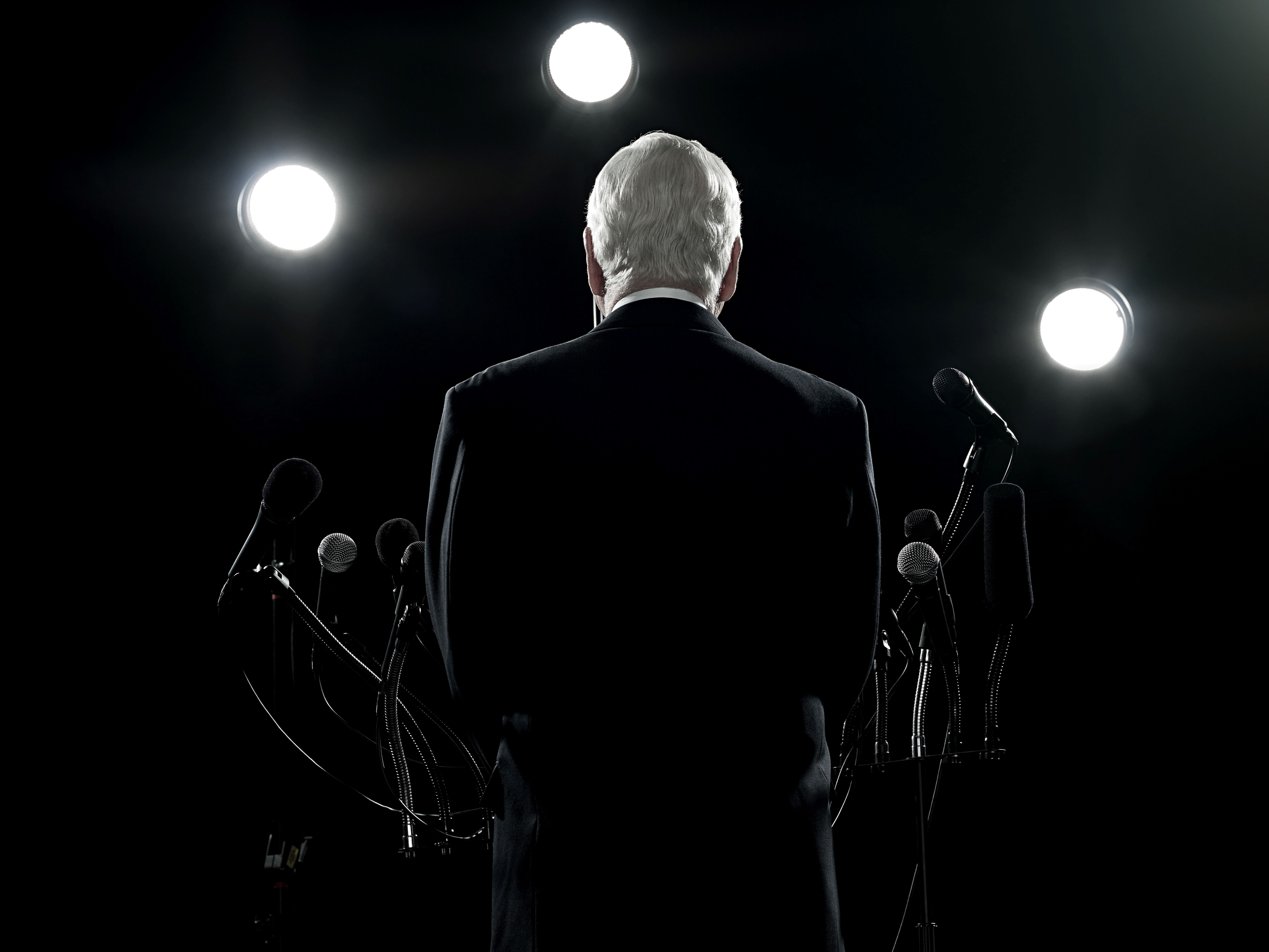إذا كان يوم السابع من أكتوبر قد أصبح الحدث العالمي الأبرز الذي استأثر باهتمام مختلف وسائل الإعلام في العالم، فإن زاوية التناول الإعلامي لهذا الحدث قد اختلفت بحسب طبيعة المنابر الإعلامية وخلفياتها وخطها التحريري سواء في الغرب أو في العالم العربي.
فرض التدفق الهائل للمعلومات على وسائل الإعلام إيقاع اشتغال سريعا ونموذجا معينا لتقديم الخبر، يقوم على الإيجاز ومواكبة التفاصيل اليومية والمستجدات المتسارعة على حساب الجانب التحليلي والقراءات المتأنية للأحداث ووضعها في سياقاتها المختلفة، ولا سيما السياق التاريخي الذي يوفر عوامل تفسيرية مهمة للحدث وتداعياته. وهو ما قد يرفع خطر تسطيح الوعي لدى المتلقي بأبعاد القضية الفلسطينية، ويجعله أسير توالي الأحداث وتسارعها والتفاعل العاطفي معها من دون إدراك دلالاتها أو تكوين وعي متكامل بشأن طبيعتها وأسبابها الحقيقية.
بدا واضحا في العديد من وسائل الإعلام ذلك التنافس على إنتاج سرديات معينة محكومة بالموقف السياسي من أطراف القضية الفلسطينية، عبر الانتقائية في تقديم المعطيات ووجهات النظر، ومنهجية صياغة المواد الإعلامية، وطبيعة التوصيفات المعتمَدَة لوصف الوقائع المرتبطة بحدث السابع من أكتوبر، فضلا عن التضليل الإعلامي الذي مارسته بعض وسائل الإعلام خصوصا المتحيزة لإسرائيل، وسعيها الحثيث لإنتاج سرديات مزيفة تخدم موقفها. لقد أفضت هذه المقاربات إلى تغييب السياق التاريخي للقضية الفلسطينية التي تعود جذورها إلى وعد بلفور سنة 1917، ما دام استحضار هذا السياق من شأنه تقوية الموقف الفلسطيني وموضعة ما فعلته المقاومة الفلسطينية في السابع من أكتوبر في سياق يفرغ محاولات حصره في ثنائية حماس – إسرائيل من مضمونها، بالشكل الذي تحاول بعض وسائل الإعلام تصويره للرأي العام.
فرض التدفق الهائل للمعلومات على وسائل الإعلام إيقاع اشتغال سريعا ونموذجا معينا لتقديم الخبر، يقوم على الإيجاز ومواكبة التفاصيل اليومية والمستجدات المتسارعة على حساب الجانب التحليلي والقراءات المتأنية للأحداث ووضعها في سياقاتها المختلفة، ولا سيما السياق التاريخي الذي يوفر عوامل تفسيرية مهمة للحدث وتداعياته
التضليل لبناء السرديات المزيفة
في تقرير منشور على موقع DawnMena يكشف (1) الصحفي الأمريكي وليام يومانز عن التحيز العميق الذي شاب التغطيات الإعلامية للسابع من أكتوبر، لصالح السرديات الإسرائيلية، خصوصا في صحف نيويورك تايمز وواشنطن بوست ولوس أنجلوس تايمز، مستدلا بتركيزها على أعداد القتلى في صفوف الإسرائيليين أكثر من نظيرها في صفوف الفلسطينيين. كذلك وُظّفَت صفات الإدانة بشكل حصري لمقتل الإسرائيليين دون الفلسطينيين على نحو ينطوي على تقليل كبير من قيمة حياة هؤلاء، وكان حجم المواد الإعلامية المخصصة لمقتل إسرائيلي واحد كانت أكبر مما خُصّص لمقتل أعداد كبيرة من الفلسطينيين. وعلى غرار الصحف، نهجت القنوات الإخبارية التلفزيونية النهج نفسه، من قبيل شبكات إن بي سي، وسي بي إس، وأي بي سي، وفوكس نيوز، وكان جليا اعتماد هذه المنابر الإعلامية بالخصوص على تصريحات وزارة الخارجية الأمريكية والمسؤولين الإسرائيليين، علاوة على مسؤولي القوى المساندة لإسرائيل.
وعلى الرغم من تبني هذا التوجه من طرف وسائل الإعلام المتحيزة لإسرائيل، فإنها بدأت تدريجيا في التحول تحت الضغط الشعبي والتحول النسبي الذي عرفته مواقف جزء من النخبة السياسية الغربية لصالح الفلسطينيين، بعد المجازر التي تعرضوا لها والوحشية التي أظهرها الاحتلال والمواقف المتطرفة الصادرة عن السياسيين الإسرائيليين. لكن هذا التحول توقف عند زاوية معالجة تساوي بين الطرفين، وترى أن الأمر يتعلق بعدم التناسب في القوة بين الفعل ورد الفعل، مستندين دائما إلى حدث السابع من أكتوبر الذي يعدونه مقياسا للمعالجة الإعلامية ومؤشرا على الموضوعية التي تُقدّم بموجبها الأحداث المرتبطة بالقضية الفلسطينية في وسائل الإعلام، في تجاوز تام للسياق التاريخي الذي من شأنه أن يضع الحدث في سياق ما تعرض له الفلسطينيون على امتداد حوالي ثمانية عقود.
حذر إعلامي عربي تحت تأثير التطبيع
على الرغم من أن زوايا المعالجة في وسائل الإعلام الغربية لا تولي أهمية للسياق التاريخي للقضية الفلسطينية، فإن الأمر يبدو منتظرا بالنظر لطبيعة خطوطها التحريرية وخلفياتها المنسجمة مع المواقف الداعمة لإسرائيل. لكن الملاحظ في هذا الصدد هو تغييب السياق التاريخي في العديد من التغطيات الإعلامية للمنابر الصحفية العربية، التي يُفترض أن تضع أحداث السابع من أكتوبر في سياق مسار طويل من الصراع الفلسطيني الإسرائيلي بكل ما تخلله من انتهاكات لحقوق الفلسطينيين، وتقديم الحدث بأنه رد فعل على عقود من التعرض لهذه الجرائم. ويبدو واضحا هنا تأثر الإعلام بخطوات التطبيع التي خطَتْها بعض الدول العربية، خصوصا بعد تغير المواقف من التطبيع بشكل أسهم في تليين حدة الخطاب الرسمي تجاه السياسات الإسرائيلية، والدفع في اتجاه تكريس نظرة مستقبلية تقوم على قبول الأمر الواقع ومنح إسرائيل مساحة إضافية لنيل مكتسبات تخدم احتلالها للأراضي الفلسطينية، في ظل الضغط الذي تمارسه القوى الغربية على مجموعة من الدول العربية تحت طائلة زعزعة استقرارها السياسي والتضييق على مصالحها الاقتصادية، ورفع شعار تقديم مصلحة الشعوب الوطنية على القضايا القومية.
من جهة أخرى، أبرزت تقارير إعلامية محاولة استثمار حدث السابع من أكتوبر في تعزيز مشروعية بعض الأنظمة السياسية العربية، وشرعنة مواقفها اللينة تجاه إسرائيل في ظل ضغوطات الغرب المتواصلة عليها للدخول في مشروع التطبيع مع إسرائيل. وقد أظهر تقرير لمجموعة من الصحفيين في موقع Arab-Reform كيفية إنجاز السرديات الإعلامية بشأن فلسطين في إعلام الشرق الأوسط في خضم حرب غزة، وأبرز التقرير إظهار وسائل الإعلام في السعودية تضامنها القوي مع الفلسطينيين، لكنها في الوقت نفسه دافعت عن التطبيع بوصفه ضرورة حتمية لضمان السلام في المنطقة، بينما سعت وسائل الإعلام في مصر إلى استثمار حرب غزة لإظهار كفاءة الرئيس عبد الفتاح السيسي، في حين كانت هذه الحرب مثار نقاش في وسائل الإعلام الإيرانية يتعلق بتداعياتها على أمن إيران واستقرارها، وركز الإعلام اللبناني على ما يمكن أن تتسبب الحرب به من أضرار اقتصادية وسياسية على البلاد.
وفي هذه النماذج جميعها، بدا واضحا أن المعالجة الإعلامية أصبحت تتعاطى مع حرب غزة وثنائية حماس وإسرائيل بمثابة منطلق القضية وأن توقف الحرب سيكون بمثابة منتهاها، في حين أن القضية الفلسطينية بأبعادها التاريخية تتجاوز حدث السابع من أكتوبر وثنائية إسرائيل وحماس/ غزة، ما دامت هذه الأخيرة جزءا من القضية التي تعود جذورها إلى حوالي قرن من الزمن. ورغم وجود بعض التواريخ ذات الدلالة في مسار القضية الفلسطينية بالتزامن مع حرب غزة، فإنه لم يكن هناك استثمار إعلامي كافٍ لها من طرف الإعلام العربي، وجعلها مناسبة لتوظيف السياق التاريخي في تكوين صورة متكاملة عن الأحداث المرتبطة بحرب غزة، من قبيل وعد بلفور (نوفمبر 1917) وحرب النكبة (ماي 1948) وحرب النكسة (يونيو 1967)، علاوة على التواريخ المرتبطة بالمجازر المرتكبة من طرف الإسرائيليين في حق الفلسطينيين، وغير ذلك من التواريخ الدالة التي يمكن توظيفها في معرض استحضار السياق التاريخي للقضية.
إن تغييب السياق التاريخي عن المواد الإعلامية المرتبطة بحدث السابع من أكتوبر قد يفضي إلى تبلور صورة ناقصة لدى الأجيال الحالية عن طبيعة القضية الفلسطينية؛ فالسياق التاريخي يكتسي أهمية أكبر عندما يتعلق الأمر بالقضايا "المعمرة" التي تستمر رغم اختلاف الأجيال.
السياق التاريخي وتحصين الموضوعية
ثمة مفارقة واضحة نجدها لدى الإعلام الغربي فيما يتعلق بتوظيف السياق التاريخي في المعالجة الإعلامية لحدث السابع من أكتوبر؛ ففي الوقت الذي عُرِف فيه الإعلام الفرنسي على سبيل المثال بتوظيف المؤرخين للمعطيات التاريخية عند معالجة مجموعة من الملفات السياسية والاقتصادية والمجتمعية، فإننا لا نكاد نجد هذه المقاربة حاضرة في المعالجة الإعلامية لحرب غزة؛ ذلك أن التركيز فقط وفي أفضل الأحوال على الوقائع الميدانية وتحليل الخطابات السياسية والبلاغات المرتبطة بحدث السابع من أكتوبر، في تجاهل تام للسياق التاريخي الذي أفرز هذه الأحداث. وهو ما عالجته بعض البرامج المنجزة على قناة الجزيرة الإنجليزية مثل برنامج: What US media is missing in Israel’s war on Gaza...and why it matters ? (3) الذي انُتقِد فيه العديد من الصحفيين الأمريكيين والبريطانيين بسبب تجريد الوقائع المرتبطة بحرب غزة من سياقها التاريخي، بشكل أسهم في التضليل الإعلامي بشأن القضية الفلسطينية. وعلى غرار ذلك، كان لافتا للانتباه النقص الواضح لتوظيف السياق التاريخي كذلك في الإعلام العربي، الذي انجَرّ بدوره إلى المواكبة اليومية للأحداث تحت تأثير المحاذير التي يقتضيها الموقف الجديد من التطبيع. في الجهة المقابلة، كان الطرف الإسرائيلي أكثر استحضارا للسياق التاريخي، ولا سيما بتوظيف الخطاب الديني الذي يحيل على "الحقوق التاريخية" لليهود في أرض فلسطين، خصوصا من طرف المسؤولين الإسرائيليين؛ إذ كانت تحظى هذه الخطابات بتغطية إعلامية مكثفة في وسائل الإعلام، مما أسهم أيضا في تقديم صورة مغلوطة عن الأحداث وسياقاتها الصحيحة.
كان لافتا للانتباه النقص الواضح لتوظيف السياق التاريخي في الإعلام العربي، الذي انجَرّ إلى المواكبة اليومية للأحداث تحت تأثير المحاذير التي يقتضيها الموقف الجديد من التطبيع. في الجهة المقابلة، كان الطرف الإسرائيلي أكثر استحضارا للسياق التاريخي، ولا سيما بتوظيف الخطاب الديني الذي يحيل على "الحقوق التاريخية" لليهود في أرض فلسطين.
إن تغييب السياق التاريخي عن المواد الإعلامية المرتبطة بحدث السابع من أكتوبر قد يفضي إلى تبلور صورة ناقصة لدى الأجيال الحالية عن طبيعة القضية الفلسطينية؛ فالسياق التاريخي يكتسي أهمية أكبر عندما يتعلق الأمر بالقضايا "المعمرة" التي تستمر رغم اختلاف الأجيال. ومن شأن التركيز على حدث معين واعتباره منطلقا لبقية الأحداث الأخرى المرتبطة بالقضية الفلسطينية، أن يكسر العلاقة السببية بين الأحداث الممتدة في الزمن، التي تعطي مشروعية أكبر للمقاومة الفلسطينية وتُبيّن حجم الحيف الذي تعرض له الشعب الفلسطيني على امتداد عقود طويلة، وهو كذلك يجرد الإعلام من الموضوعية والمهنية التي من المفترض أن يتحلى بهما، ويجعله في خدمة الأجندات السياسية عوض خدمته الأساسية المتمثلة في تكوين رأي عام واع بطبيعة القضايا المطروحة عليه.
